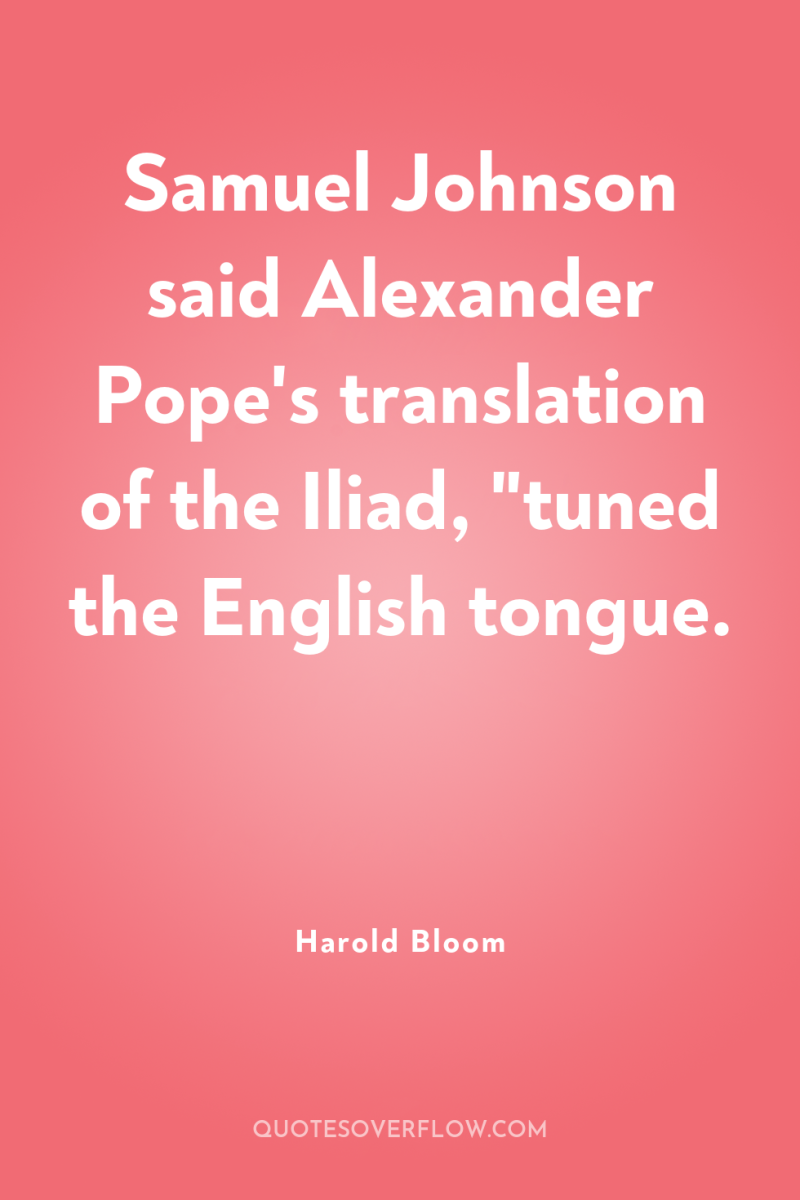
1
Samuel Johnson said Alexander Pope's translation of the Iliad, "tuned the English tongue.Harold Bloom
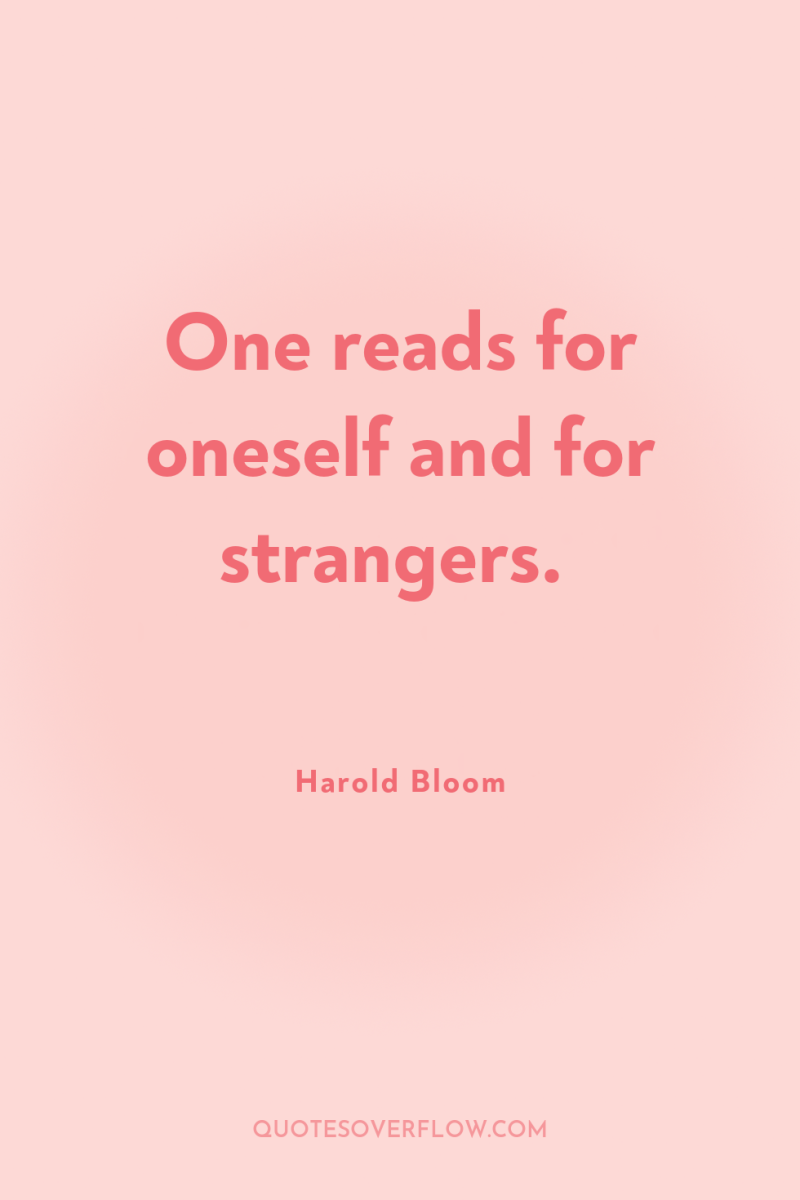
2
One reads for oneself and for strangers.Harold Bloom
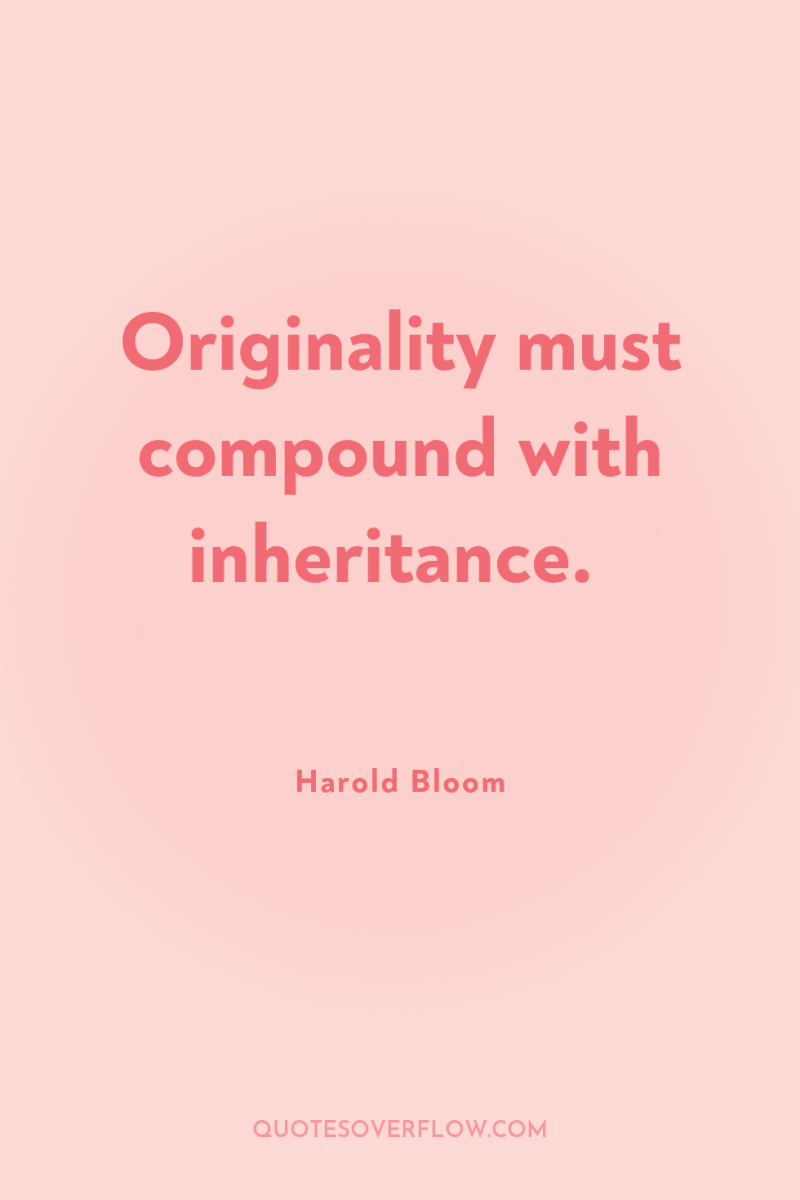
3
Originality must compound with inheritance.Harold Bloom
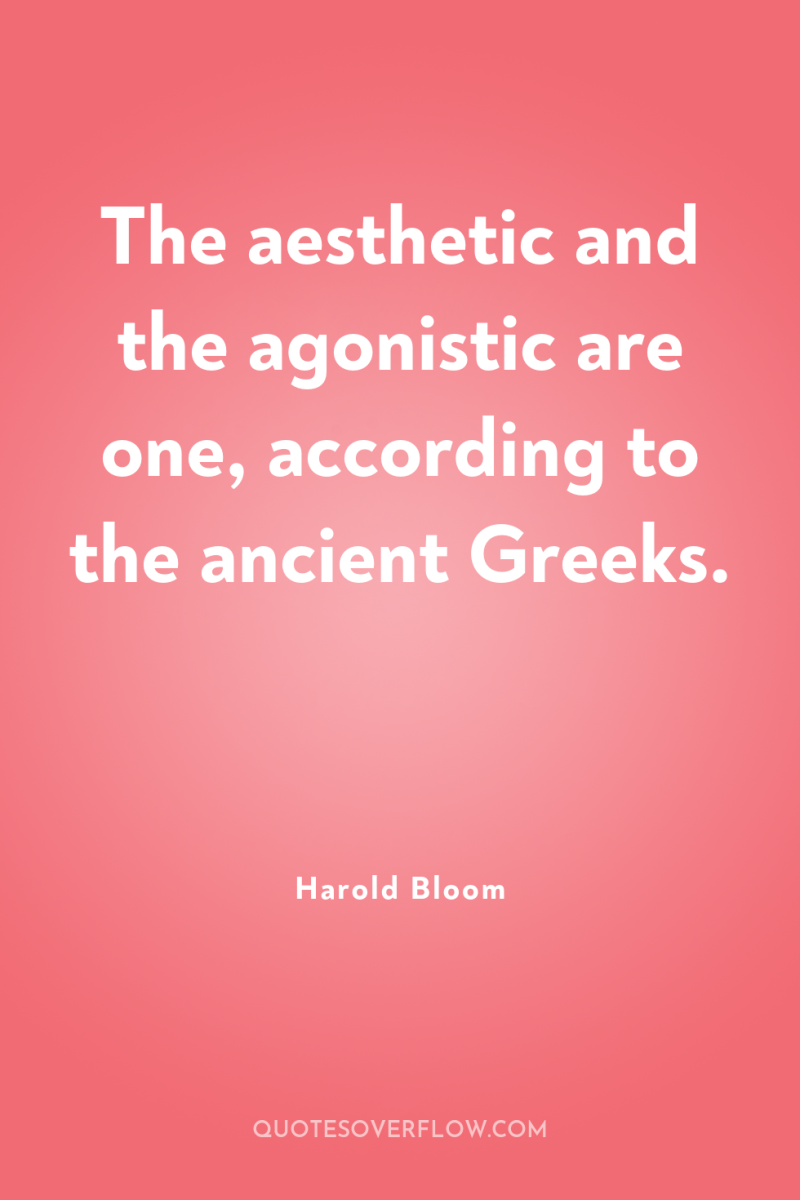
4
The aesthetic and the agonistic are one, according to the ancient Greeks.Harold Bloom
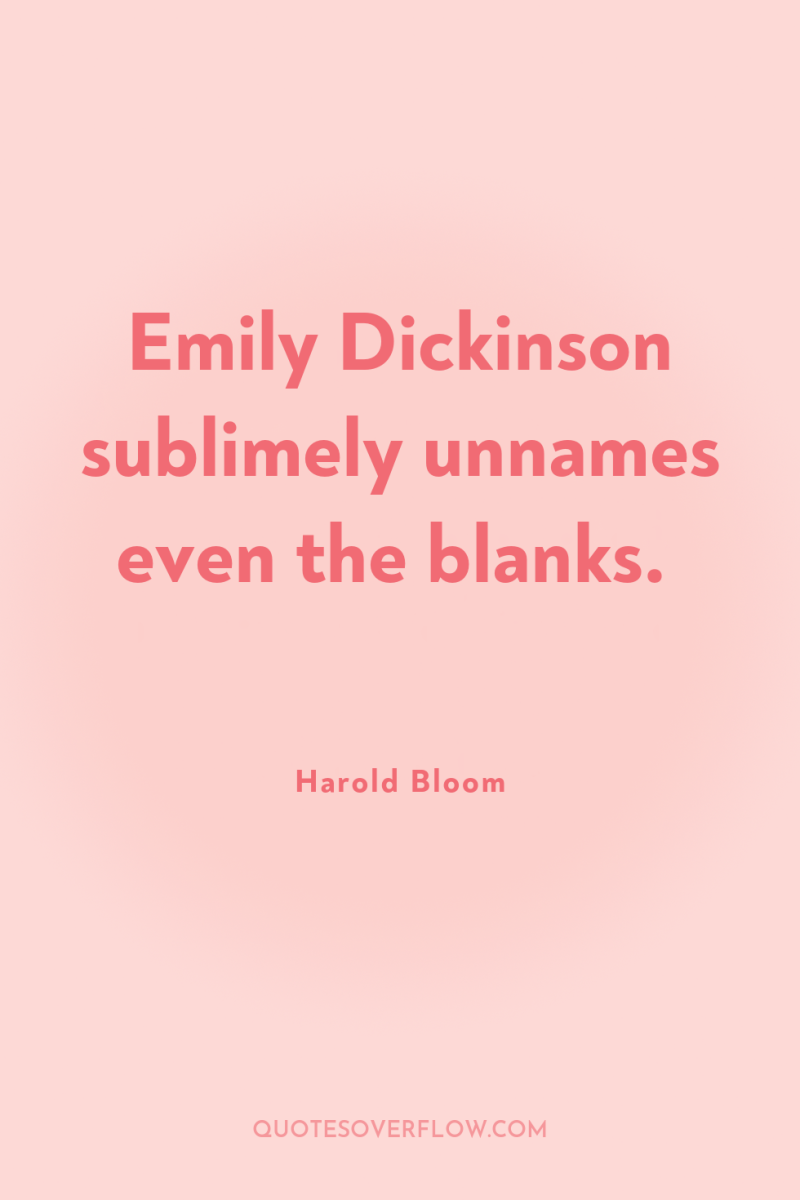
5
Emily Dickinson sublimely unnames even the blanks.Harold Bloom

6
The inventor knows HOW to borrow.Harold Bloom
7
Persuasion is a strong but subdued outrider.Harold Bloom
8
King die hard, in Shakespeare and in life.Harold Bloom
9
Shakespeare's exquisite imagining belies our total inability to live in the present moment.Harold Bloom
10
One mark of originality that can win canonical status for a literary work is strangeness that we either never altogether assimilate, or that becomes such a given that we are blinded to its idiosyncrasies.Harold Bloom
11
Reviewing bad books is bad for the character — WH AudenHarold Bloom
12
To read in the service of any ideology is not to read at all. The mind's dialogue with itself is not primarily a social reality. All that the Western canon can bring one is the proper use of one's own solitude.Harold Bloom
13
Great literature will insist upon its self-sufficiency in the face of the worthiest causesHarold Bloom
14
Great writing is always rewriting or revisionism, and is founded on a reading that clears space for the self.Harold Bloom
15
All writers are to some extent inventors, describing people as they would like to see them in life.Harold Bloom
16
We are destroying all esthetic standards in the name of social justice.Harold Bloom
17
Greatness recognizes greatness, and is shadowed by it.Harold Bloom
18
Shakespeare and his few peers invented all of us.Harold Bloom
19
Aesthetic value emanates from the struggle between texts: in the reader, in language, in the classroom, in arguments within a society. Aesthetic value rises out of memory, and so (as Nietzsche saw) out of pain, the pain of surrendering easier pleasures in favour of much more difficult ones ... successful literary works are achieved anxieties, not releases from anxieties.Harold Bloom
20
Aesthetic criticism returns us to the autonomy of imaginative literature and the sovereignty of the solitary soul, the reader not as a person in society but as the deep self, our ultimate inwardness.Harold Bloom
21
Characters carrying the playwright's disapproval is a un- Shakespearian burden.Harold Bloom
22
Dante subsumed everything, and so, in a sense, secularized nothing.Harold Bloom
23
Memory is always in art, even when it works involuntarily.Harold Bloom
24
A poem, novel, or play acquires all of humanity's disorders, including the fear of mortalityHarold Bloom
25
Vision is defined as a program for restoring the human.Harold Bloom
26
Nietzsche tended to equate the memorable with the painful.Harold Bloom
27
I could not find any evidence that her circumstances had harmed Jane Austen's work in the slightest. That, perhaps, was the chief miracle about it. Here was a woman about the year 1800 writing without hate, without bitterness, without fear, without protest, without preaching. Her mind consumed all impediments.Harold Bloom
28
The aesthetic is an individual rather than a societal concern.Harold Bloom
29
When critics surrender to the prevailing orthodoxy, the author says they adopt the rhetoric of an occupied country, "one that expects no liberation from liberation.Harold Bloom
30
All canonical writing possesses the quality "of making you feel strangeness at home.Harold Bloom
31
Walter Pater defined Romanticism as adding strangeness to beauty.Harold Bloom
32
It has always been dangerous to institutionalize hope, and we no longer live in a society in which we will be allowed to institutionalize memory.Harold Bloom
33
Romance depends upon imperfect knowledge.Harold Bloom
34
Terror and rapture to Emily Dickinson are alternative words for "transport".Harold Bloom
35
Lawrence will go on burying his own undertakers.Harold Bloom
36
What Emily Dickinson does not rename or redefine, she revises beyond easy recognition.Harold Bloom
37
The old-fashioned sins of reading is the only sense that matters.Harold Bloom
38
Almost anything at all can be transmuted into a labyrinth.Harold Bloom
39
Capital is necessary to the cultivation of esthetic value.Harold Bloom
40
Tradition is not only bending down, or process of benign transmission. It is also a conflict between past genius and present aspiration in which the price is literary survival or canonical inclusion.Harold Bloom
41
Canonical writing is born of an originality fused with tradition. — From the book jacketHarold Bloom
42
At our present bad moment, we need above all to recover our sense of literary individuality and of poetic autonomy.Harold Bloom
43
Reading the very best writers–let us say Homer, Dante, Shakespeare, Tolstoy–is not going to make us better citizens. Art is perfectly useless, according to the sublime Oscar Wilde, who was right about everything. He also told us that all bad poetry is sincere. Had I the power to do so, I would command that these words be engraved above every gate at every university, so that each student might ponder the splendor of the insight. .Harold Bloom
44
The democratic age mourns the value of human beings.Harold Bloom